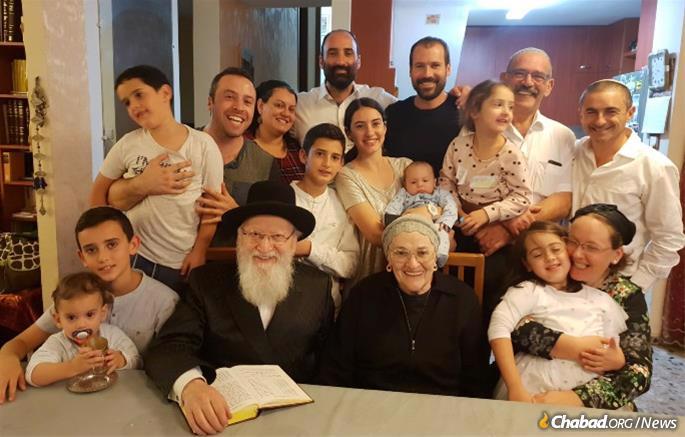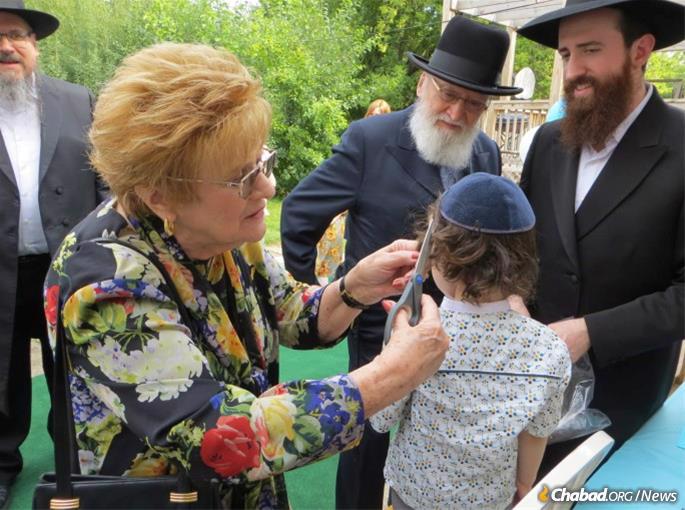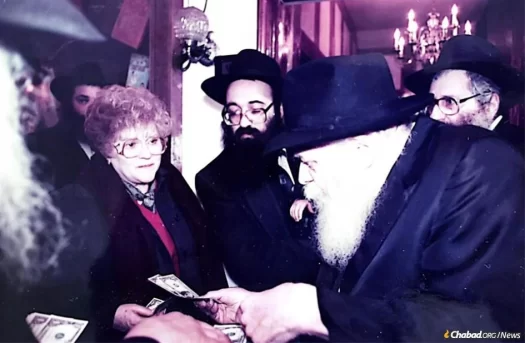
Obituary: Judy Silber, 88, a Pillar of Chicago Jewish Community
by Menachem Posner – chabad.org
Judy Silber, a longtime resident of Chicago, where she was known for her kindness and personal interest in others, passed away on Shabbat, 28 Tevet, bringing to a close a lifetime of good deeds, kindness and devotion to Judaism.
She was born in Budapest, where her father, Rabbi Chananya Yomtov Lipa Steinmetz, was a well-regarded and popular mohel (circumciser) and a close disciple of the Satmar Rebbe.
As trouble brewed in Germany, Rabbi Steinmetz traveled to London to arrange passage for his family to the Holy Land, which was then under British rule. But his efforts were blocked by the signing of the “White Paper,” which limited immigration to British Mandate Palestine.
He spent two years in London, working tirelessly to get his family out of Hungary. During that time, he came to know the legendary Chabad chassid, Rabbi Yitzchok Horowitz, known as Itche Der Masmid (“the Studious”), who impressed him greatly.
In the meantime, his father-in-law, who was a rabbinical judge in Budapest, arranged Czechoslovakian papers for the family, and they reunited in Paris. There, they were neighbors (and soon admirers) of an unassuming couple, Rabbi Menachem M. Schneerson (the future Rebbe) and Rebbetzin Chaya Mushka Schneerson, of righteous memory.
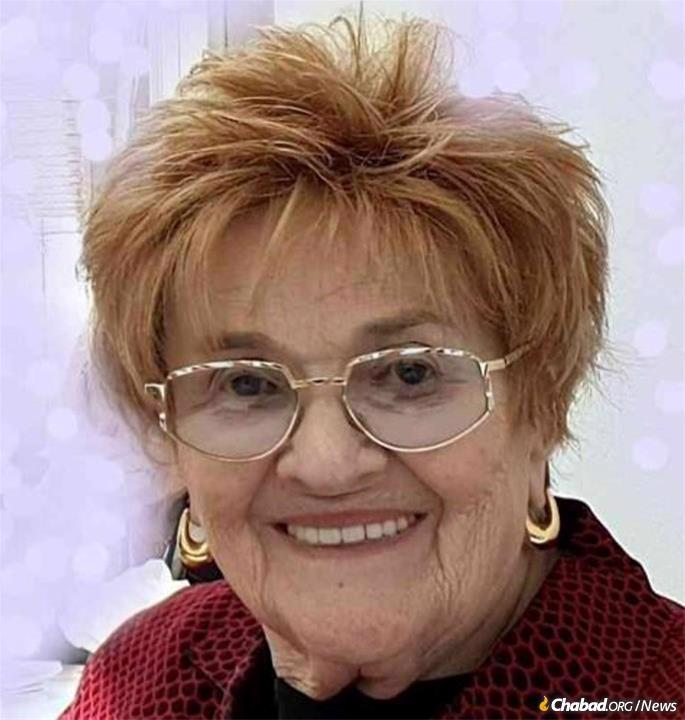
Off to the Dominican Republic
As the situation in Europe became increasingly dire, following a three-hour conversation with the future Rebbe, the decision was made to sail to the Dominican Republic, one of the few countries that were taking in Jewish refugees.
At the Rebbe’s advice, Rabbi Steinmetz honed his skill as a shochet (“ritual slaughterer”), a craft that would come to good use in the Dominican Republic, where he slaughtered doves for the Jewish refugees to eat.
While in the country, then ruled by dictator Rafael Leónidas Trujillo, they did what they could to encourage Jewish life in any way. For example, with matzah sent by the Sixth Rebbe—Rabbi Yosef Yitzchak Schneersohn, of righteous memory (who had arrived in the United States just seven weeks prior)—they hosted 47 Jewish American sailors for Passover.
Young Judy attended Catholic school, mostly together with indigenous girls, and was excused from attending prayers or otherwise violating Jewish law or principles. She also frequently traveled with her father, as he went from city to city, providing kosher food and performing circumcisions as needed.
At one point, she and her father were in the northern part of the island when an elderly German Jew invited them into his home to speak. He introduced them to a native woman with whom he had been living and explained in German that he had promised his mother that he would only marry in accordance with Jewish law, and he now wished to have the rabbi perform a marriage between him and his non-Jewish consort.
When the rabbi refused, the man took out a rifle and held it to his head, threatening to shoot if his demands were not met. Remaining cool, the rabbi invited his “host” to join him for a few shots of rum and to discuss the man’s mother, whose legacy still meant so much to him.
The rabbi and his daughter surreptitiously spilled out the contents of the rabbi’s cup, while the elderly German Jew became drunker and drunker. Once he was sufficiently incapacitated, they snuck out of the house and ran for their lives.
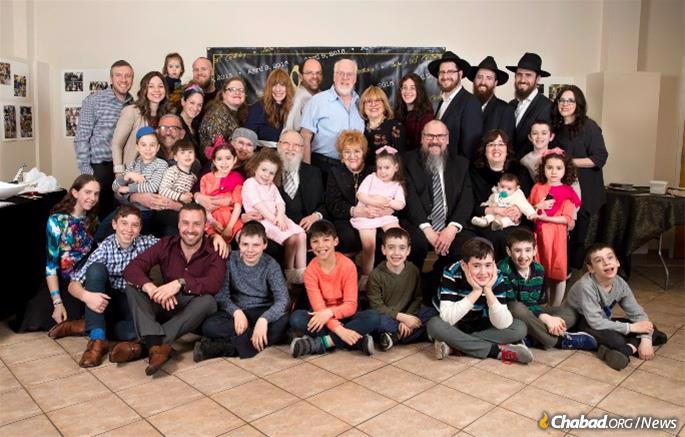
Tremendous Effort to Maintain Jewish Life
Maintaining Jewish life there required tremendous efforts, and the Steinmetz family would shutter their windows all Shabbat so that they would not see the mundane and crass activity all around them for the duration of the holy day.
When the circumstances allowed for it, the Steinmetz family relocated to Venezuela, where their eldest son, Efraim became financially successful and would one day become instrumental in building Jewish life in that country and facilitating the growth of Chabad there and elsewhere, including the building of a mikvah in S. Domingo, a task given to him by the Rebbe.
Meanwhile, Judy was sent to the Bais Yaakov High School in the Williamsburg section of Brooklyn. Shortly thereafter, the family immigrated to Chicago, where they had relatives, and she attended the Chicago Jewish Academy and acclimated to life in America.
In 1952, she was introduced to a distant cousin named Wilhelm (Ephraim) Silber, a talented cantor and singer who had miraculously survived the Holocaust.
The couple married and settled in Chicago, where Cantor Silber was employed by a series of congregations. At the same time, they founded and ran a successful life insurance business.
At that time, they became close to Rabbi Shlomo Zalman and Chaya Sora Hecht, who introduced them to the Rebbe’s mode of outreach, something that came naturally to them in any case.
From her parents and brothers (by then, her second brother Sol, was an ordained rabbi and a vaunted lexicographer in New York, who had published more than 35 dictionaries and reference books), Judy often heard memories of the Rebbe in Paris and the holy lifestyle he maintained, deeply devoted to Torah study, prayer and the Chassidic way of life.
As the years passed, the Silbers studied Chassidic teachings and became more and more involved in the city’s growing cadre of Chabad institutions. By the late 1970s, Judy Silber was among the chief organizers of the national annual convention of the N’shei Chabad women’s organization hosted in Chicago.
Throughout the years, the Rebbe maintained a personal connection to the family, going so far as to remind a visiting relative to bring fruit as a gift to Rabbi Steinmentz, since he recalled from his days in Paris that he enjoyed fruit.
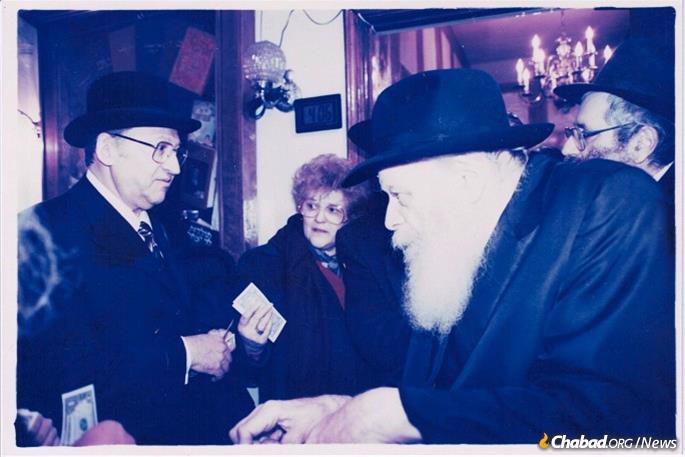
A Pillar of Chicago Jewish Community
Even as she was involved on a structural level, her care and concern remained deeply personal.
“We needed a place to send our daughter, Rachel, for preschool,” says Marcy Goldberg, who knew the Silbers for decades through the life insurance business. “Judy suggested that I send her to a traditional Jewish preschool. I told her, ‘But I don’t light candles or do anything like that.’ She told me it was no problem and that I should send her anyway; Rachel would learn about the holidays, a few songs, maybe even a little Hebrew.”
One thing led to another, and Goldberg ended up koshering her home, keeping Shabbat, and visiting people in hospitals each week as a volunteer for Chabad for more than three decades.
Skilled as a writer she composed letters and promotional material for the Chabad institutions that were taking root in the city, including FREE (Friends of Refugees of Eastern Europe).
According to Rabbi Shmuel Notik, who has directed FREE since 1980, the Silbers took a personal interest in the success of the institution, having introduced him to many of their acquaintances and customers, some of whom became key partners in FREE’s work in the city and its suburbs.
“I was just starting out and having them at my side was invaluable,” says Notik. “They gave me their time, their reputations and their expertise, all because they believed in the cause and saw a way that they could help.”
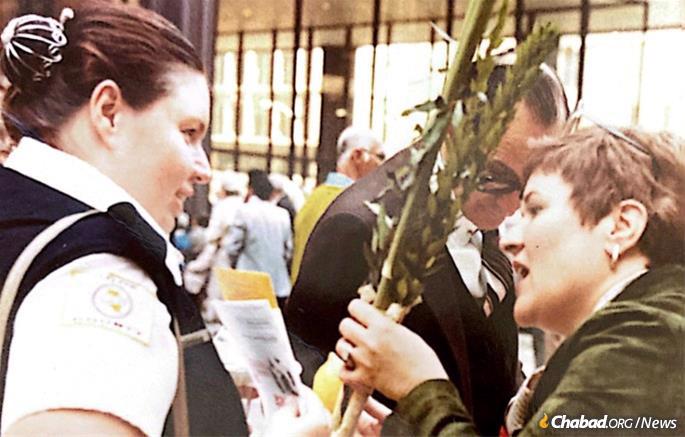
In recent decades, Wilhelm Silber served as cantor at the Mishne Ugmoro congregation, which has a significant Spanish-speaking membership, including many converts from Latin America. Fluent in Spanish, Silber was a warm, nurturing, welcoming and encouraging guide to them all.
Gentle and caring, she accompanied many women as they gave birth, caring for them and making sure they were comfortable. At the other end of the arc of life, she also volunteered at the city’s chevra kadisha (“burial society”), providing dignity and honor to the departed.
In addition to her husband of 69 years, she is survived by her children, Dina Chaviv (Jerusalem), Brookie Silber (Monsey, N.Y.) and Rabbi Mayer Silber (Chicago); grandchildren; and great-grandchildren. She is also survived by her sister, Chava Steinmetz.
